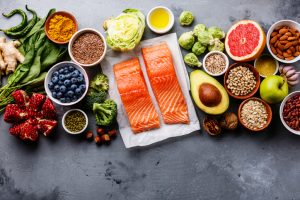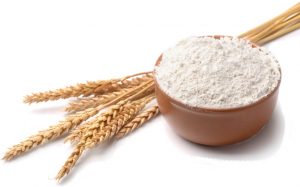 If you’re preparing to breastfeed your newborn, you might be wondering how your diet or your own food allergies may affect your baby’s nutrition and overall health.
If you’re preparing to breastfeed your newborn, you might be wondering how your diet or your own food allergies may affect your baby’s nutrition and overall health.
In this article, we hope you find helpful, educational information on healthy breastfeeding and dietary considerations for nursing moms, including:
- The benefits of breastfeeding
- How to prepare for breastfeeding
- The importance of staying hydrated
- A healthy breastfeeding diet
- Gluten-free breastfeeding
- Dairy free breastfeeding
- MSPI breastfeeding
Benefits Of Breastfeeding
Although there are many benefits to breastfeeding your baby, it’s important to note that not all women and babies are able to breastfeed and that’s okay! We do, however, encourage you to give it a try and understand the reasons why breastfeeding is a good choice for both moms and babies.
How Breastfeeding Benefits Babies
Breastfeeding is a natural way to provide your baby with nourishment and allows for bonding time with mom. But there are additional breastfeeding benefits you may not be aware of:
 Breast milk is the most easily digestible food that a baby can consume.
Breast milk is the most easily digestible food that a baby can consume.- Antibodies are passed to your child through your breast milk, which can protect them against infections, including respiratory and ear infections. In fact, breastmilk has the ability to change to help combat existing illness and protect against future illnesses.
- Breast milk contains most of the nutrients your baby needs for the first 6 months of life.
- You can use breastfeeding as a way to gauge overfeeding and prevent your baby from consuming too many calories. Breastfeeding usually provides your baby with just what they need during each feeding.
- Breastfeeding is also believed to lower the risk of SIDS (Sudden Infant Death Syndrome).
- Your baby will be on the most effective path to optimal brain development. Research shows that the areas of the brain that are benefited the most from breastfeeding are associated with language, emotional function and cognitive learning.
How Breastfeeding Benefits Moms
Breastfeeding offers many benefits to babies but the benefits to moms are also very evident.
- Breastfeeding helps your uterus get back to its normal size and shape. As your baby nurses, the muscles of your uterus are stimulated causing it to reduce in size gradually.
- Producing breast milk for your baby burns a lot of calories! In fact, breastfeeding can eat up to 500 calories per day. This can help you lose that extra baby weight a little bit faster.
- Breastfeeding is convenient. You can often do it anytime, anywhere, on demand. With bottles and formula, you may find you’re spending a lot of time measuring, warming and sterilizing.
- Breastfeeding is cheap! Just fuel mom with good foods and hydrate and baby will be all set.
- Breastfeeding your baby will often delay ovulation, which means your body will not menstruate. Breastfeeding causes the release of prolactin, which keeps estrogen and progesterone levels low. Some women do report that their cycles return between 6-8 months, but some breastfeeding moms can skip their monthly period for more than a year.
How To Prepare For Breastfeeding
Your body will naturally begin to change as it prepares for breastfeeding. You may see the size and shape of your nipples begin to change, and you may experience some breast tenderness and sensitivity.
The early days of breastfeeding can be tough on you, baby, and surprisingly, your partner! Just be prepared for ups and downs and know that with time, you’ll all get the hang of it! One of the first considerations is to be cognizant of what you eat -- and eat more! You should be prepared to take in about 500 extra calories each day to help your body produce breast milk.
As you are preparing your meal plans, it is important to eat a balanced diet. This includes a balance of:
- Starchy foods: potato, pasta, rice and bread
- Some dairy produce: yogurt, milk
- Some protein: lean meat, fish or eggs
- Plenty of fruit and vegetables
If you’re looking to learn more about breastfeeding, we would strongly advise you to attend breastfeeding classes. They are a great way to visualize the process and get to know your body before it’s time to introduce your newborn to the experience.
Interested in learning more breastfeeding tips? The U.S. Department of Health & Human Services Office on Women's Health 'Your Guide to Breastfeeding' offers tips and advice to help you on your breastfeeding journey. View the guide here.
The Importance Of Staying Hydrated While Breastfeeding
 It’s normal to be thirsty when you’re breastfeeding. This is because of the increased amount of the hormone oxytocin. Oxytocin levels increase when your baby latches onto your breast, which causes your milk to flow. At the same time, it can leave you feeling thirsty and scrambling for a glass of water.
It’s normal to be thirsty when you’re breastfeeding. This is because of the increased amount of the hormone oxytocin. Oxytocin levels increase when your baby latches onto your breast, which causes your milk to flow. At the same time, it can leave you feeling thirsty and scrambling for a glass of water.
Breast milk is made up of almost 87% water, which is why it’s so important to stay hydrated. When your baby is drinking, so should you! You can meet your hydration needs as you breastfeed by drinking an eight-ounce glass of water every time your baby feeds along with a few additional glasses throughout the day.
Staying hydrated is really important for you and baby, but it can be challenging to remember to drink water as you navigate life with a newborn! Just to be safe, be aware of the common signs of dehydration, including feeling very tired, low or decreasing milk production/supply or if your urine is not clear/light yellow in color.
One common question we often hear from new moms is whether it is safe to have alcohol if you are breastfeeding. The answer is yes, but with some important considerations. Alcohol does pass through into your breastmilk. If you’re going to have an occasional alcoholic beverage, remember that it takes your body two to three hours to eliminate the alcohol from one serving of beer or wine. The more you drink, the longer it will take to eliminate alcohol from your body and breast milk. Just remember, even if you drink alcohol, stay hydrated with water so you are ready whenever you need to nurse baby again.
What is A Healthy Breastfeeding Diet?
 If you’ve just given birth to your little one, you might be tempted to do just about anything to lose that unrequested baby weight. You might even be tempted to begin a diet that restricts what you can eat. Women, however, should not “diet” while breastfeeding. During your first three months of breastfeeding, it’s completely normal to see minimal weight loss; every individual and every pregnancy is different. Just know that over time, many women report that breastfeeding actually helps them lose pregnancy pounds! So good news for you and baby!
If you’ve just given birth to your little one, you might be tempted to do just about anything to lose that unrequested baby weight. You might even be tempted to begin a diet that restricts what you can eat. Women, however, should not “diet” while breastfeeding. During your first three months of breastfeeding, it’s completely normal to see minimal weight loss; every individual and every pregnancy is different. Just know that over time, many women report that breastfeeding actually helps them lose pregnancy pounds! So good news for you and baby!
As you breastfeed, it’s important to keep a healthy, balanced diet so you can get the nutrients you need. If you don’t have the nutrients needed for your baby within your diet, your body will draw on its reserves, which can eventually become depleted. Not only is eating healthy good for baby, these nutrients will also help give you the strength and stamina to keep up with the physical demands of caring for a newborn.
As you decide what to eat, make sure you choose a variety of foods to create a fully balanced diet. You can have longer-lasting energy by eating complex carbs such as whole grains, cereals, fresh fruit, and vegetables. Try to mix up your meals day-to-day, to make sure you’re not under-supplying any key nutrients.
A healthy breastfeeding diet should be filled with nutritious, balanced foods. Here is a list to give you a great start:
- Fish and seafood: salmon, seaweed, shellfish and sardines
- Lean meat: beef, pork, liver
- Vegetables and fruit: sweet corn, avocados, asparagus, sweet peas, sweet potatoes, potatoes, mushrooms, kiwi, cabbage, watermelon, onions, berries, tomatoes, broccoli and kale, etc.
- Nuts and seeds: almonds, flaxseed, walnuts and chia seeds
- Other foods: quinoa, buckwheat, oats, yogurt, milk and eggs
How Do The Foods You Eat Affect Breast Milk?
Nothing is harder for a mom than seeing her baby miserable or uncomfortable. You might be surprised to learn that in some cases, an uncomfortable baby is the cause of the foods you eat. Some moms are able to pinpoint where their diet went wrong, based on their baby’s reaction.
Foods like broccoli, cabbage, Brussel sprouts, certain dairy products, garlic, chili pepper, or chocolate, have been known to cause babies to be irritable or gassy. What might cause your baby discomfort, however, is much different than eating something that your baby has an allergic reaction to. If you were to eat a food that caused your little one to have a reaction, the symptoms might include a rash or hives, congestion or hard time breathing, or green and mucousy stools. If this is the case, consult your pediatrician.
Getting ready for the arrival of your new baby? Take a look at this video: What Should You Pack in Your Hospital Bag?
Gluten Free Breastfeeding Tips
What is Celiac Disease?
 Celiac disease is an autoimmune disorder that results in the inability to digest gluten. If someone with celiac disease ingests gluten (a protein found in wheat, rye and barley), it may cause damage to their small intestine and even their nervous system.
Celiac disease is an autoimmune disorder that results in the inability to digest gluten. If someone with celiac disease ingests gluten (a protein found in wheat, rye and barley), it may cause damage to their small intestine and even their nervous system.
Why does this matter for moms and babies?
Celiac disease is hereditary - people with a first-degree relative with the disease have a 1 in 10 risk of developing it as well. Just because you don’t have it, doesn’t mean your baby can’t develop the disease. It’s estimated to affect 1 in 100 people worldwide and many Americans are undiagnosed.
Luckily, a balanced, nutrient-based diet for breastfeeding doesn’t have very many wheat, rye, or barley staples. You should still stick to the food guidelines above to maintain a healthy diet - with the exception of pasta, and other foods that may have traces of gluten in the seasonings or ingredients of prepackaged food. Despite its name, buckwheat does not contain wheat in it or the gluten protein. It’s actually a seed rather than a grain, which makes it gluten-free!
How this might affect breastfeeding
If you already have celiac disease, it is very important for you to stick to a gluten-free diet during your pregnancy and as you breastfeed. If you consume gluten, the disease will become active and lead to a lack of absorption of nutrients that are crucial for both you and your baby. Breast milk will also benefit your baby’s immune system and gastrointestinal functions while they develop.
You shouldn’t feel the need to keep your baby on a gluten-free diet just because you are on one. If your baby doesn’t show any celiac symptoms or hasn’t been diagnosed, it’s encouraged to introduce gluten into their diet as they grow.
Dairy Free Breastfeeding Tips
If your breastfed baby has been diagnosed with a sensitivity to the dairy in your diet, they may be sensitive to specific cow milk antibodies, in the form of proteins. This can be passed into your breast milk and cause a reaction.
How this might affect breastfeeding
If your baby is showing signs of a dairy allergy or a milk protein intolerance, your doctor may recommend that you follow a dairy-free diet as you continue breastfeeding. As you remove dairy products from your diet, remember that it can take 10 to 20 days to eliminate cow’s milk protein from your system. Removing dairy from your regular diet can reduce calories, fats, and protein intake from not only you but also your baby. Because you should be taking in at least an extra 500 calories per day as you breastfeed, you will have to come up with other ways to boost calories, fats, and protein in your diet.
You can meet these needs by including more tofu, soy products, nuts, and beans into your daily meals. Be sure to read the labels of the foods you choose to eat. There are many hidden sources of dairy you should be aware of such as casein and whey. These can be found in processed foods such as crackers, cookies, granola bars, cereals, and in baked or frozen pasta meals.
As a little treat (and a way to keep you motivated to stay on this difficult dairy-free journey), keep in mind that Oreos are dairy-free! Continue to check the food labels as you grocery shop and you might find some delightful surprises you can still incorporate into your breastfeeding diet.
MSPI Breastfeeding Tips
What is MSPI?
Milk Soy Protein Intolerance, or MSPI, is a temporary infant intolerance to the proteins in milk and soy. Both breastfed and formula-fed babies can develop an intolerance to cow’s milk and soy proteins. This sensitivity means infants are unable to digest the proteins properly. The symptoms can vary from each infant and are similar to an intolerance to cow’s milk.
How MSPI might affect breastfeeding
Why does MPSI intolerance include reactions to soy along with milk? In both allergy types, your baby is reacting to the proteins that get passed through your breast milk. Soy and cow’s milk proteins are very similar in structure, which means baby’s body may not be able to tell the difference between the two.
As a result of the MSPI allergy, your baby will likely need more time for its gut to mature before you can introduce solid foods. Typically, your doctor may recommend that you wait until your infant is at least six months old before you introduce solids into their diet. The order of the food introductions for a baby with MSPI may be different than a baby without MSPI as well. First, you may start with vegetables (least allergenic foods), followed by meats, then fruits, and then end with the introduction of cereals and grains.
Continuing to breastfeed your baby, although challenging, will provide immunities and nutrients your baby will need during the healing process of their gut and digestive system. As you breastfeed, you should continue to follow the well-balanced, healthy food guidelines. Just like any other food restricted diet, you will need to replace your lost calories, fats, and proteins with foods that contain the nutrients you and your baby need.
How To Eat Out When You Are Breastfeeding A Baby With Allergies
Whether you have an intolerance to gluten, dairy, or soy, or you need to follow a gluten, dairy, or soy- free diet for your baby, you might come across issues eating out at restaurants.
Some tips for beginners include:
- Check the website for a list of allergy contents within each dish.
- Avoid busy meal times so you are able to speak with the manager or chef about possible food sensitivities.
- Double check all of your food as it arrives at your table. Keep in mind, not all ingredients are visible (such as cheese) to the naked eye and something as simple as a hamburger bun could have soy in it.
- Bring some allergy-free snacks along with you, so you don’t go hungry if you are unable to eat the foods on the menu.
Fortunately, the food service and food product industries are becoming more aware and accommodating to individuals with food sensitivities.
Hopefully, these tips will help you enjoy breastfeeding and help you manage a well-balanced diet as you provide the proper nutrients for you and your baby.
Getting ready for the arrival of your new baby? Take a look at this video: What Should You Pack in Your Hospital Bag?
At Moreland OB-GYN, we specialize in women’s health care and prioritizing the needs of our patients. We hope you’ll connect with us to help answer your questions and we hope you’ll turn to our experts as a trusted resource for information.
Looking for more helpful information? Download your pregnancy planning kit, now!









